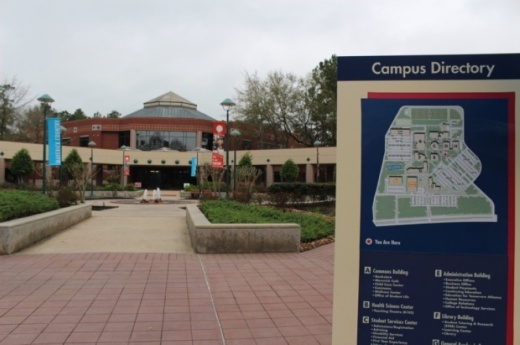Although legislation has yet to be filed, the four-year degree programs would be offered starting in 2022 if approved during the ongoing legislative session, he said. Class sizes are expected to be between 25 and 30 students, but the official program curriculum has not been finalized.
“Once we do a canvass of the market and figure out where the demand is going to be—that's the first step to developing these programs,” Scott said. “Then, because these are going to be bachelor’s programs, ... we have to make sure that ... the design of the curriculum and that the [campus] placement that these graduates will go into will not be in competition with our four-year degree [college] partners.”
Expansions are also underway for the LSCS four-year degree programs in nursing, cybersecurity and applied sciences. Scott said the programs have received over 1,000 applicants before fall 2020, the first semester they were offered.
“We thought that we would be able to scale these programs over a few years, but we found that we're going to need to add additional cohorts and open them to even more students to accommodate the demand,” Scott said.
The Bachelor of Science nursing program at LSC-Montgomery will expand by one cohort in fall 2022 for a total of two cohorts with 30 students each, Media Relations Director Bill Van Rysdam said.
According to Van Rysdam, LSC-Montgomery will offer a hybrid learning environment, and LSC-Tomball will offer an online program for the bachelor of science in nursing degree—a new offering for the LSC-Tomball campus. LSCS will continue to accept new cohorts of students in the fall and spring semesters.
According to Scott, student interest in the college’s nursing program has increased due to the high demand for health care professionals during the ongoing coronavirus pandemic.
“Just speaking directly of the nursing program, there's probably not ... a campus within our service area that's not seeing increased need for nurses and health care professionals,” Scott said. “We're seeing a really elevated demand for health care workers, so we could probably expand that into any number of campuses and find it.”
The Bachelor of Applied Technology program in cybersecurity and the Bachelor of Applied Science program in energy, manufacturing and trades management will both continue to offer one cohort each fall and spring semester, according to Van Rysdam.
Lone Star College will keep class sizes the same in the coming year, Van Rysdam said. The cybersecurity degree program will have a capacity of 48 and 24 students in the fall and spring semesters, respectively, and the energy, manufacturing and trades management program will accommodate 60 students in its fall and spring cohorts.
Authorized Texas community colleges are able to offer up to three baccalaureate programs as a result of Senate Bill 2118, which passed in the 85th legislative session in 2017, as Community Impact Newspaper previously reported.
Although a legislative timeline is unclear, according to Scott, LSCS requires legislative approval to offer more than three baccalaureate programs, as Community Impact Newspaper previously reported. SB 2118 authorized community colleges to offer up to three bachelor’s degrees in applied science, applied technology and nursing upon approval from the Texas Higher Education Coordinating Board.
While it has not been determined which LSCS campuses will accommodate the new degree programs, Scott said funding for the program expansions will come from the current operating budget and will not affect student tuition.
Anna Lotz contributed to this report.





